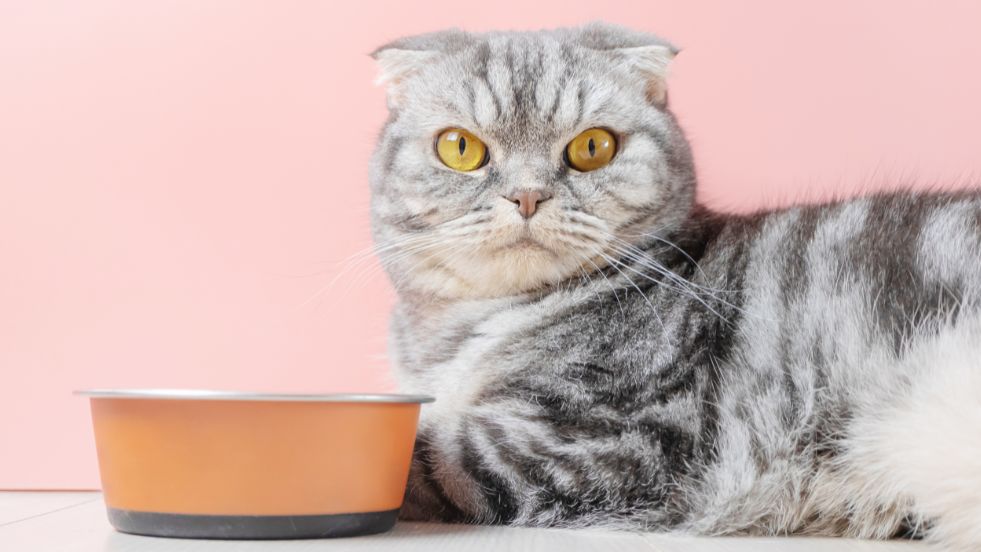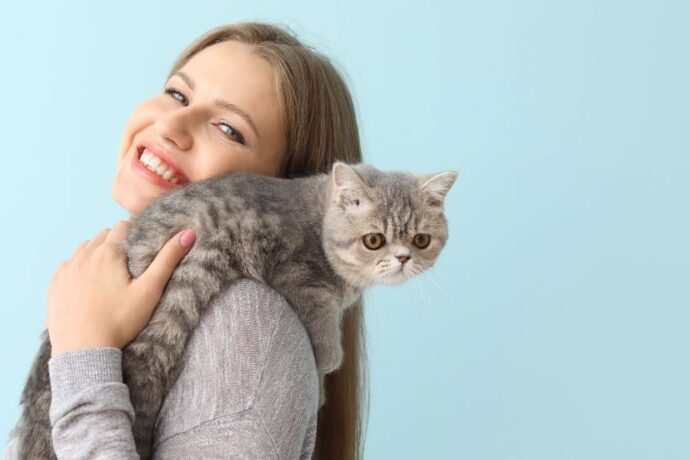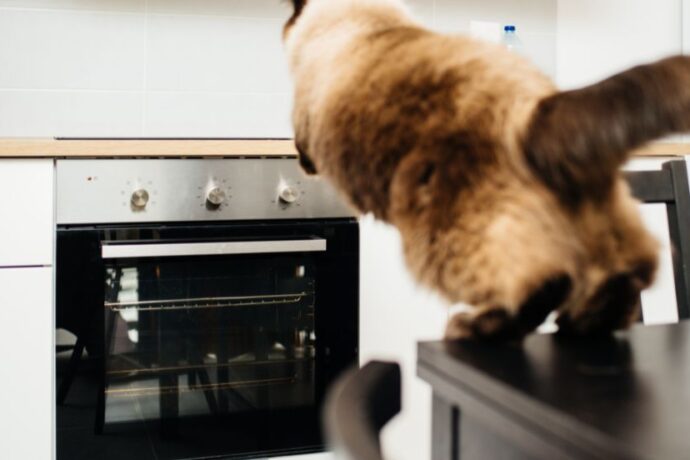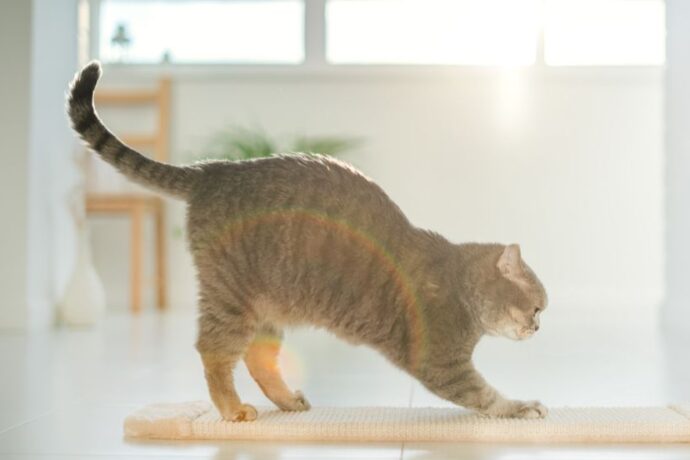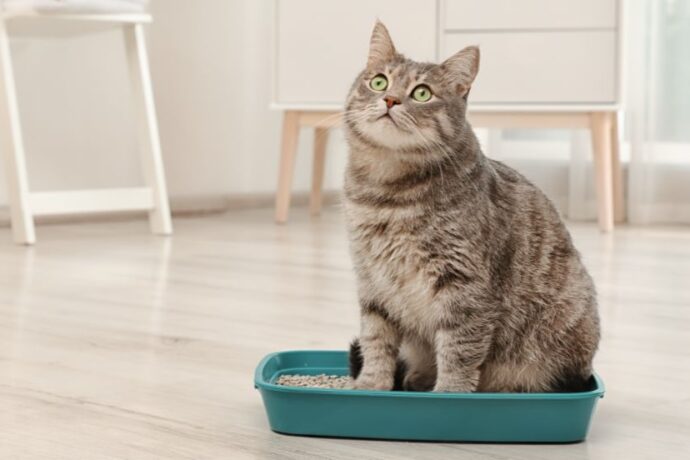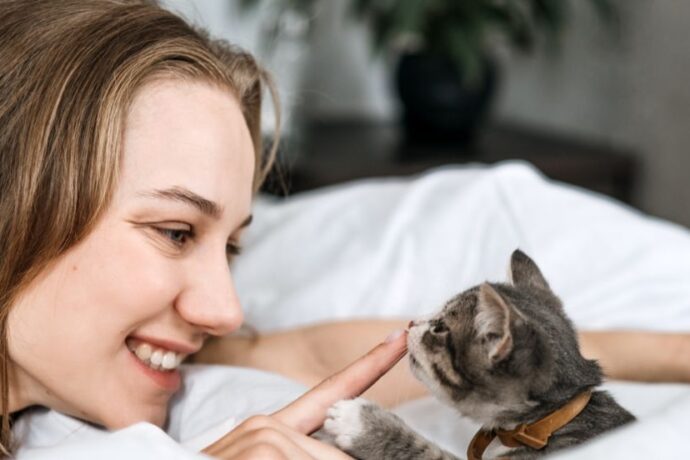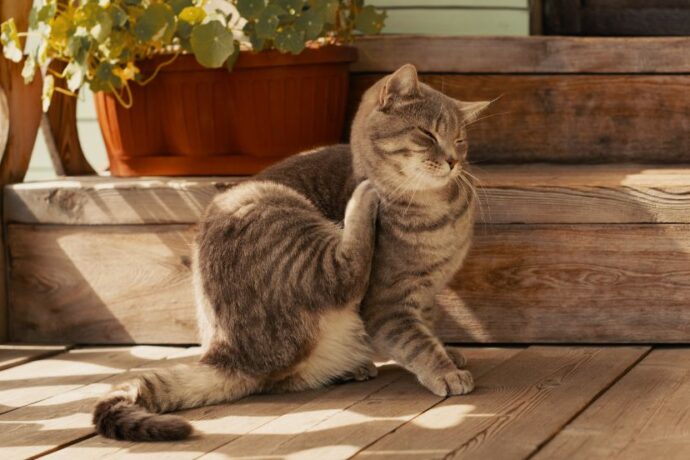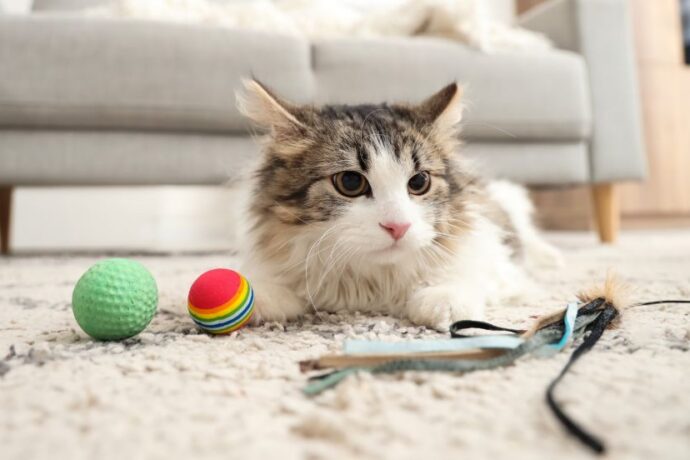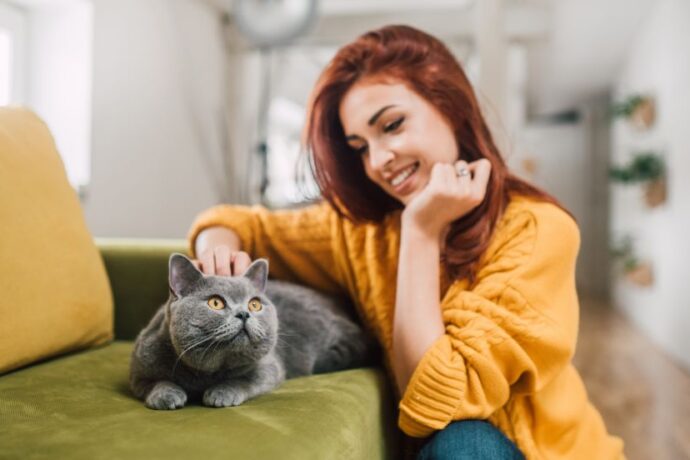Cats are naturally curious creatures, especially when it comes to human food. If you’ve ever sat down to a meal only to find your cat staring at you with those big, pleading eyes, you know how tempting it can be to share a little bite. But here’s the truth — many foods that are perfectly safe for humans can be toxic or even deadly for cats (1).
Why It’s Important to Know Which Foods Are Unsafe
Cats have very different metabolisms compared to humans, meaning their bodies can’t break down certain compounds the way we do. According to the American Society for the Prevention of Cruelty to Animals (ASPCA), thousands of cats are rushed to the vet every year due to food-related toxicities (2).
Research published in the Journal of Feline Medicine and Surgery also highlights that even small amounts of toxic foods can lead to severe health issues such as kidney failure, anemia, liver damage, and neurological problems (3).
Common Human Foods That Are Dangerous for Cats
Cats are obligate carnivores, meaning their bodies are designed to thrive on a meat-based diet. Unlike humans and even dogs, their digestive systems can’t handle certain compounds found in many common foods. Feeding your cat these items — even accidentally — can lead to digestive issues, organ damage, or life-threatening poisoning.
15 human foods you should never feed your cat
1. Chocolate and Caffeine
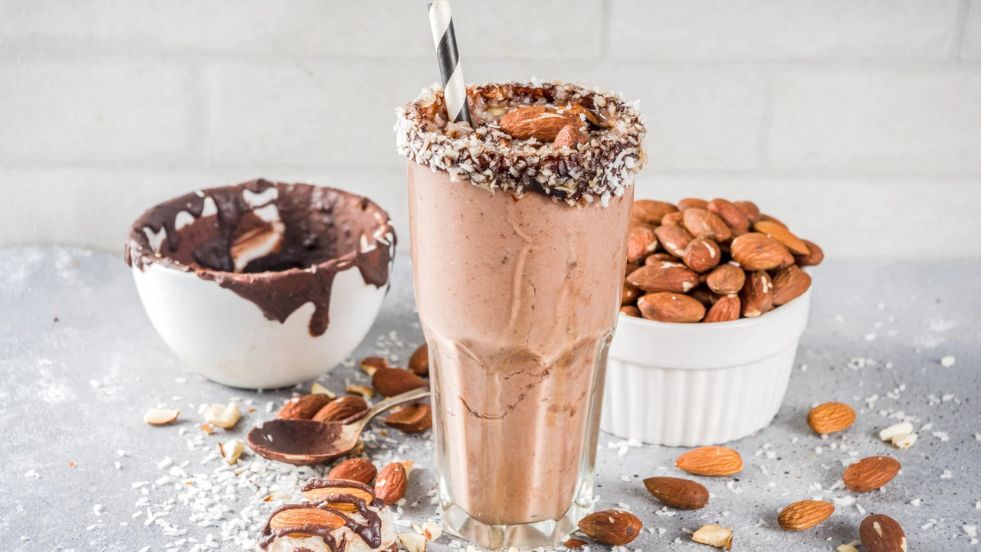
Canva
Why it’s dangerous:
- Chocolate contains theobromine and caffeine, both of which cats cannot metabolize.
- Potential effects:
- Hyperactivity, tremors, increased heart rate, seizures, and even death in severe cases.
- Types to avoid:
- Dark chocolate and baking chocolate are especially toxic due to higher theobromine levels.
- Scientific Note:
- According to the Pet Poison Helpline, chocolate poisoning in cats is less common than in dogs but can be far more severe due to their smaller body size (4).
2. Onions, Garlic, Chives, and Leeks
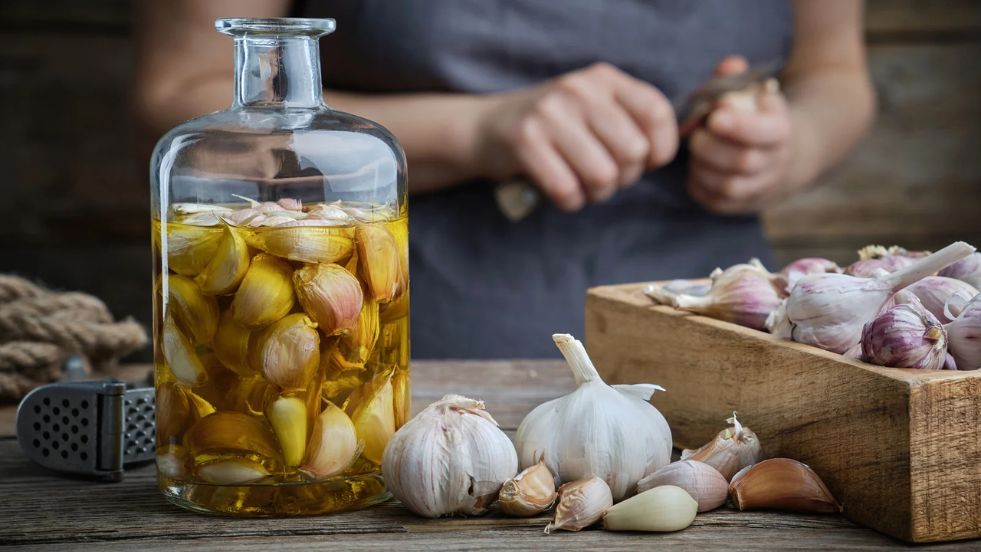
Canva
Why it’s dangerous:
- These alliums contain thiosulfates that damage red blood cells, leading to hemolytic anemia.
- Potential effects:
- Lethargy, pale gums, rapid heartbeat, and, in severe cases, organ failure.
- Forms to avoid:
- Raw, cooked, powdered, or dehydrated — all are toxic.
- Scientific Note:
- The Merck Veterinary Manual warns that repeated small exposures over time can be just as harmful as a single large dose (5).
3. Grapes and Raisins
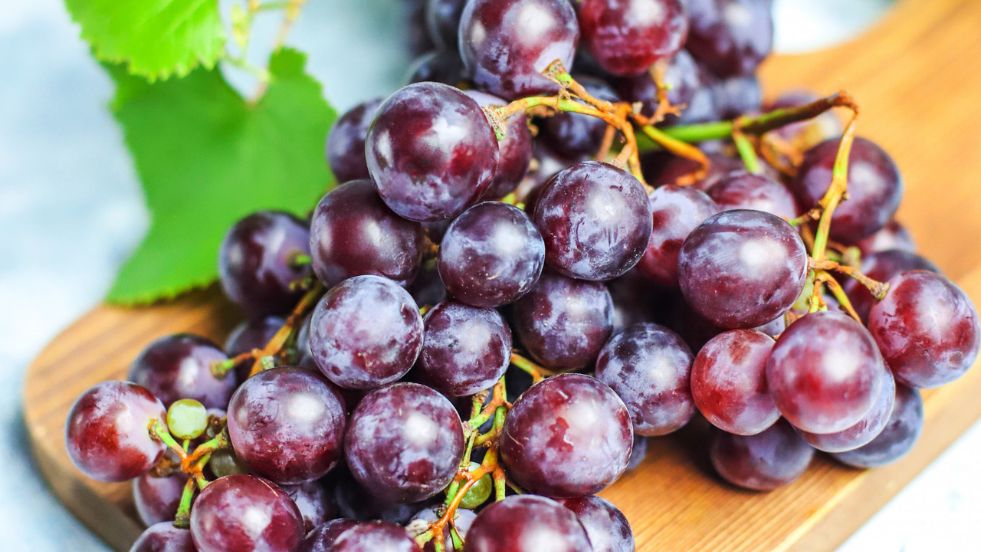
Canva
Why it’s dangerous:
- While the exact toxin is unknown, even tiny amounts can cause acute kidney failure in cats.
- Potential effects:
- Vomiting, diarrhea, reduced urine output, and dehydration.
- Scientific Note:
- A Journal of Veterinary Emergency and Critical Care study found that ingestion can cause irreversible kidney damage within 24 hours (6).
4. Alcohol
Why it’s dangerous:
- Cats are extremely sensitive to ethanol, which depresses their nervous system.
- Potential effects: Disorientation, vomiting, diarrhea, dangerously low body temperature, coma, and death.
- Sources to watch out for: Alcoholic beverages, unbaked bread dough, and certain sauces.
5. Raw Dough and Yeast
Why it’s dangerous:
- Unbaked dough expands inside the cat’s stomach, causing bloating and, in severe cases, a stomach rupture. Fermentation also produces ethanol, which can lead to alcohol poisoning.
- Potential effects: Abdominal swelling, pain, vomiting, and lethargy.
6. Dairy Products
Why it’s dangerous:
- Most adult cats are lactose intolerant and lack the enzyme lactase needed to digest milk sugars.
- Potential effects: Diarrhea, gas, bloating, and stomach cramps.
- Sources to watch out for: Special lactose-free cat milk is safe if you want to treat your cat occasionally.
7. Xylitol (Artificial Sweetener)
Why it’s dangerous:
- Found in sugar-free gum, candy, baked goods, and even some peanut butter brands, xylitol triggers a sudden insulin release.
- Potential effects: Severe hypoglycemia (low blood sugar), vomiting, seizures, and liver failure.
- Scientific note:The FDA warns that even a pea-sized amount of xylitol can be life-threatening for small pets like cats (7).
8. Raw Meat, Eggs, and Fish

Canva
Why it’s dangerous:
- Raw animal products may contain Salmonella, E. coli, or Listeria, leading to food poisoning. Raw fish also contains thiaminase, which destroys thiamine (vitamin B1).
- Potential effects: Vomiting, diarrhea, seizures, and neurological issues from vitamin B1 deficiency.
- Safe alternative: Always serve cooked, plain meat or fish without seasonings.
9. Bones and Fat Trimmings
Why it’s dangerous:
- Bones can splinter, causing internal injuries or choking hazards. Excess fat, even cooked, can lead to pancreatitis.
- Potential effects: Abdominal pain, lethargy, vomiting, and, in severe cases, organ damage.
10. Caffeinated Drinks (Tea, Coffee, Energy Drinks)
Why it’s dangerous:
- Contains methylxanthines, which cats cannot metabolize.
- Potential effects: Hyperactivity, tremors, abnormal heart rhythms, and seizures.
- Scientific note: Even caffeine residue in discarded coffee grounds or tea bags can be harmful.
11. Salt and Salty Snacks
Why it’s dangerous:
- High sodium intake can lead to sodium ion poisoning.
- Potential effects: Excessive thirst, frequent urination, vomiting, tremors, and, in extreme cases, death.
- Sources to avoid: Chips, pretzels, salted nuts, and processed meats.
12. Avocados

Canva
Why it’s dangerous:
- Contains persin, which can cause vomiting, diarrhea, and pancreatitis in cats.
- Potential effects: Gastrointestinal upset, especially in sensitive breeds.
13. Tuna (in Excess)
Why it’s dangerous:
- While small amounts of plain tuna are safe, too much can cause mercury poisoning and nutritional imbalances.
- Potential effects: Tremors, poor coordination, and long-term organ damage.
- Tip: Use tuna as an occasional treat, not a dietary staple.
14. Dog Food
Why it’s dangerous:
- Dog food lacks the essential taurine that cats need. Long-term feeding can lead to heart disease and blindness.
- Tip: Always feed your cat a species-appropriate diet.
15. Processed Foods and Junk Foods
Why it’s dangerous:
- Many packaged foods contain preservatives, spices, sugars, and artificial additives harmful to cats.
- Potential effects: Digestive upset, obesity, and chronic diseases over time.
Scientific Evidence
Veterinary studies consistently emphasize that cats lack certain liver enzymes necessary to process specific compounds found in human food. For example:
- The ASPCA Animal Poison Control Center ranks chocolate, onions, and xylitol among the top culprits for cat toxicity (8)(9).
- A study in the Journal of Veterinary Emergency and Critical Care found that grapes and raisins caused acute renal failure in cats within just 12–24 hours of ingestion (10).
Simply put, even tiny portions of these foods can cause serious harm.
FAQs About Cats and Human Foods
1. Can cats have a tiny taste of chocolate or milk?
A. No. Even small amounts of chocolate are toxic, and most adult cats are lactose intolerant, which can lead to digestive distress.
2. What should I do if my cat accidentally eats something toxic?
A. Call your veterinarian immediately or contact the ASPCA Animal Poison Control Center. Do not try home remedies without professional advice.
3. Are there any safe human foods for cats?
A. Yes, but in moderation. Cooked plain chicken, pumpkin, carrots, and small amounts of blueberries are generally safe — but always consult your vet first.
Final Thoughts
Your cat’s health and safety depend on what you feed them — and what you don’t. While it may be tempting to share your food, even seemingly harmless snacks can lead to severe health complications.
Stick to a balanced, vet-approved diet for your feline friend, and remember: when in doubt, don’t risk it. Keeping toxic human foods out of reach is one of the simplest and most effective ways to ensure your cat lives a long, healthy, and happy life.
References:
- Human foods to avoid for cats
- People Foods to Avoid Feeding Your Pets
- Household Food Items Toxic to Dogs and Cats
- Can Cats Eat Chocolate? A Guide to Safety
- Overview of Veterinary Toxicology
- Acute kidney injury in dogs following ingestion of cream of tartar and tamarinds
- Paws Off Xylitol; It’s Dangerous for Dogs
- ASPCA Poison Control
- NATIONAL POISONS INFORMATION CENTRE
- Incidence of Vitis fruit‐induced clinical signs and acute kidney injury in dogs and cats

